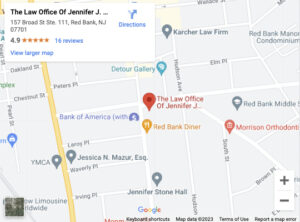
While litigating your case and going to court may be the first thing you think about if there is a divorce or child custody dispute, these are not your only options. Alternative dispute resolution methods exist to help prevent court dockets from becoming overcrowded, sometimes offering many benefits not available by going the traditional litigation route.
Mediation and arbitration are both alternative dispute resolutions. However, they are very different, so it’s important to know the distinctions when considering your available options.
Here, we can help you identify mediation versus arbitration and which one might be right for you.
Overview of Mediation

The New Jersey court system defines mediation as a process in which a neutral third party facilitates communication between parties involved in a legal dispute to assist them in reaching a mutually acceptable agreement.
Many mediation sessions occur in offices or conference rooms rather than in stuffy courtrooms. During mediation, the appointed mediator discusses their role as a facilitator and asks what the parties hope to get out of the process. Each party may be asked to give an opening statement.
Then, depending on the mediator’s style and the particular situation, the parties may be placed in different rooms, called caucuses, or stay in the same room. If they are separated, the mediator will shuttle back and forth between the parties, sharing some of the information that was exchanged and trying to help them reach an amicable decision.
The mediator is neutral and does not have a stake in the case. They will try to move the parties toward a peaceful resolution. They can also explain the weaknesses of their position and the potential drawbacks of taking their case to court.
If the parties reach a settlement, the mediator will put this in writing and have the parties sign it.
Who Attends Mediation?
The parties involved in the dispute are in mediation. For example, in a divorce mediation, both spouses would be present. If they have lawyers, their lawyers may also be present. The mediator is also present.
That is usually the entire cast of characters for mediation. However, the mediator and parties may agree to others being present or communications from others being shared, such as recommendations from counselors, teachers, appraisers, or financial advisors.
Binding or Non-Binding
Mediators are not substitutes for judges. They do not have the authority to make decisions for the parties. They cannot impose a settlement.
If the parties do reach an agreement, the mediator prepares a writing that outlines this agreement. The parties (or their lawyers) can then present the agreement to the court, which can make the agreement part of a binding court decree.
What Are the Benefits of Mediation?
There are several benefits of mediation over litigation, including:
- Faster – Mediation can drastically speed up the process, transforming a contested case to an uncontested one in cases where the parties are able to reach an amicable agreement. Getting in front of a judge to sign off on a settlement is much easier than trying to schedule a trial. This allows the parties to resolve the issue and move on with their lives faster.
- Cost savings – Mediation is often much less expensive than litigation, even when attorneys are involved. Preparing for a trial requires many more hours of preparation and attending court, so both parties stand to reduce costs by mediating their dispute.
- More amicable – Mediation helps promote understanding and is more civil in nature than attacking each other in court. It is, by design, a collaborative process, which is particularly important in cases where the parties will have to continue working with each other, such as in child custody cases.
- More flexible – In mediation, the mediator and parties can suggest creative solutions to resolve their dispute rather than being tied to the standard solutions ordered by the court. Additionally, parties who are part of creating the solution are more likely to comply with the terms of the agreement than when an order is imposed on them.
Having a successful mediation can also help create a foundation to solve any problems that arise in the future.
Overview of Arbitration
Arbitration is more similar to going to court than mediation. You and the other party present your case, and a decision is rendered. However, the process is in a private and confidential setting instead of in an open courtroom.
Like with mediation, the parties must agree for the case to be heard in arbitration instead of it progressing through the traditional legal channels.
Additionally, there is a third party involved in the process, called the arbitrator. The arbitrator has a similar function as a judge. They hear testimony, evaluate evidence, and manage the proceedings. The parties may call witnesses and have their lawyers examine and cross-examine them. However, the process is not as formal as a trial, and the rules of evidence and procedure may be relaxed.
After arbitration is concluded, the arbitrator renders a decision.
Who Attends Arbitration?
The parties in dispute are present at arbitration, along with their lawyers. An arbitrator or panel of arbitrators is also present. Any witnesses that need to be called will also be present. A court reporter may also be present to record the proceedings.
Binding or Non-Binding
The decision the arbitrator makes is binding if the parties agreed to binding arbitration before presenting the case. Additionally, there may be restrictions on appealing decisions reached in arbitration.
What Are the Benefits of Arbitration?
Some of the benefits of arbitration include:
- Cost savings – Though probably not as significant as those in mediation, there are usually some cost savings in arbitrating, rather than litigating, the case.
- Privacy – The case is not heard in public as a litigated case would be.
- Less formal – The rules of arbitration are simpler, and the environment may be less stressful than litigation.
- Speed – Getting a decision from an arbitrator, who is often a lawyer or retired judge, may be much faster than waiting for a clogged docket to open up for a hearing date.
Call our offices at (732) 747-1882 or email us to request a time we can sit down to discuss your situation.



